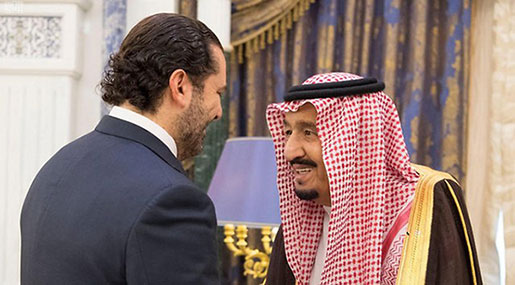
Will Changes In Riyadh Lead To New Era In ‘Israel’-Saudi Relations?

Oded Eran
In the coming weeks, the Trump administration is expected to launch a new initiative [possibly the same old thing under a different cloak], which includes normalization gestures from Arab states towards ‘Israel'.

Palestinian President Mahmoud Abbas and US special envoy Jason Greenblatt's visits to Riyadh strengthen the expectation for Saudi gestures. If such gestures are offered, they will be part of a debate arising in ‘Israel' over the content of the initiative and the value of said gestures.
Saudi Arabia is undergoing a quick process of change. Crown Prince Mohammad bin Salman may become the youngest Arab king, and at the age of 32 he is already leaving his mark on the kingdom. Since 2015, he has been the engine for deep changes in the country's security, foreign, social and economic policy. Since he began his involvement, Saudi Arabia has been standing firmly and openly against Iran, its nuclear program and its subversive activity in the region, especially in Yemen, Riyadh's backyard.
The innovations in the past few years were the nuclear effort, former US President Barack Obama's weakness and helplessness, and Mohammad bin Salman's meteoric rise.
Both ‘Israel' and Saudi Arabia watched the American administration's willingness to strike a deal with Iran, which fails to put a complete lid on its nuclear option, with a lot of concern. ‘Israel' and Saudi Arabia are learning US President Donald Trump, unlike his past version presidential hopeful Donald Trump, won't walk away from the agreement with Iran unless it is blatantly violated.
Even if they aren't voicing it clearly, ‘Israel' and Saudi Arabia are also concerned about Washington's tendency to continue the gradual process of retreating from the Middle East. The lack of success in the Afghanistan and Iraq wars, the declining dependence-which was never critical-on regional oil sources, and the very small chance for diplomatic achievements as a result of US initiatives are discouraging American investments in the region.
‘Israel' and Saudi Arabia are concerned about dormant American involvement in Syria compared to Russia and Iran's active presence. Furthermore, they suspect that Iran is developing a land corridor beyond the Mediterranean Sea, with the help of its allies who control part of this axis.
Meanwhile, Lebanese Prime Minister Saad al-Hariri's resignation should be interpreted against this background. Preventing the creation of an ‘Iranian corridor' is a heavy strategic mission, which will be hard to accomplish without American involvement.
The Iranian danger alone likely won't be enough to openly bring Saudi Arabia and ‘Israel' closer together. Mohammad bin Salman is working on fortifying his inheritance, and it's unlikely that he wants to expose himself to Arab criticism, especially Iranian, over his "betrayal of the Palestinian people." A positive ‘Israeli' response to the American initiative, once it is formed, might convince him to take the risk.
Source: Ynetnews, Edited by website team
Comments
- Related News



